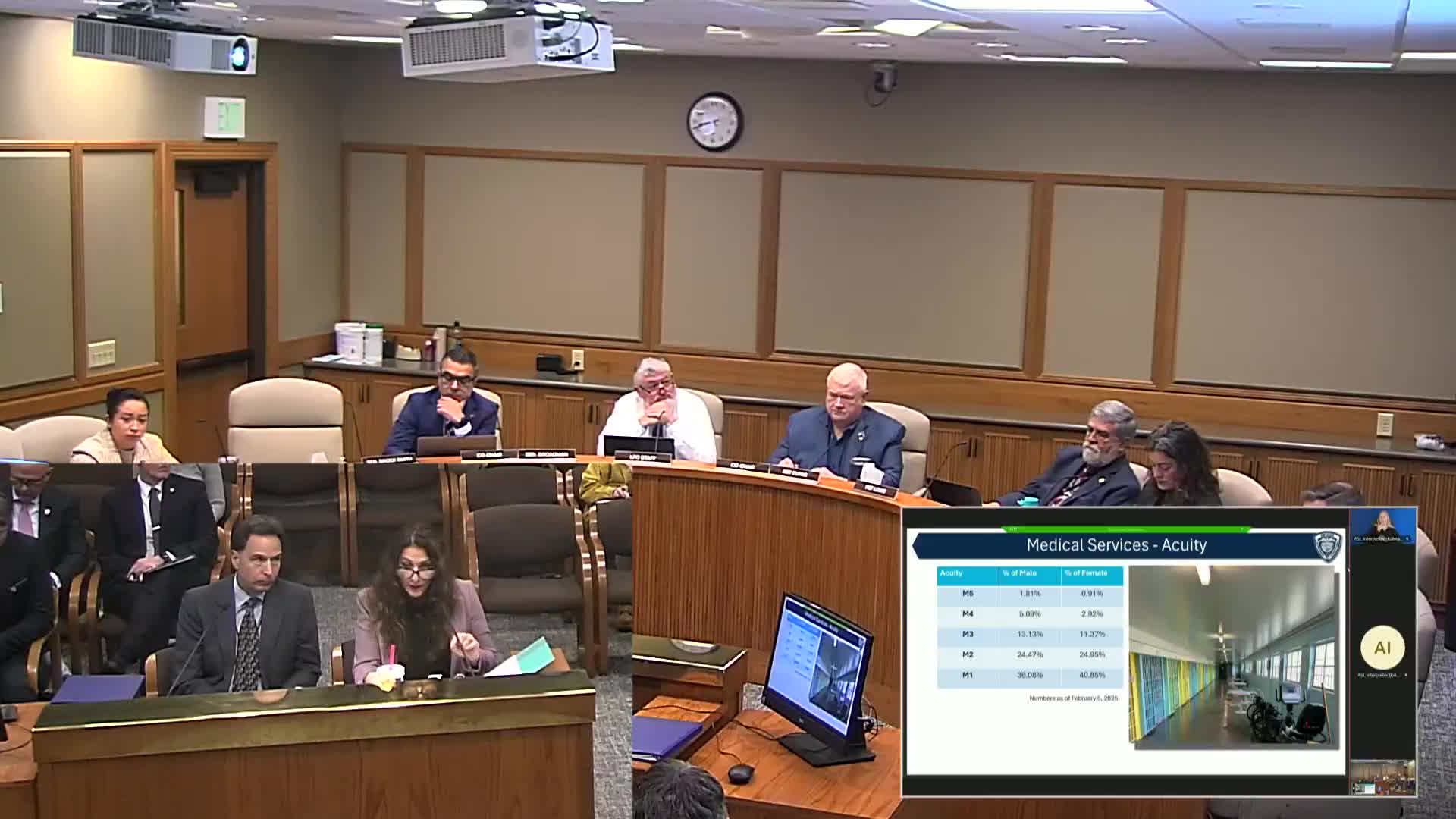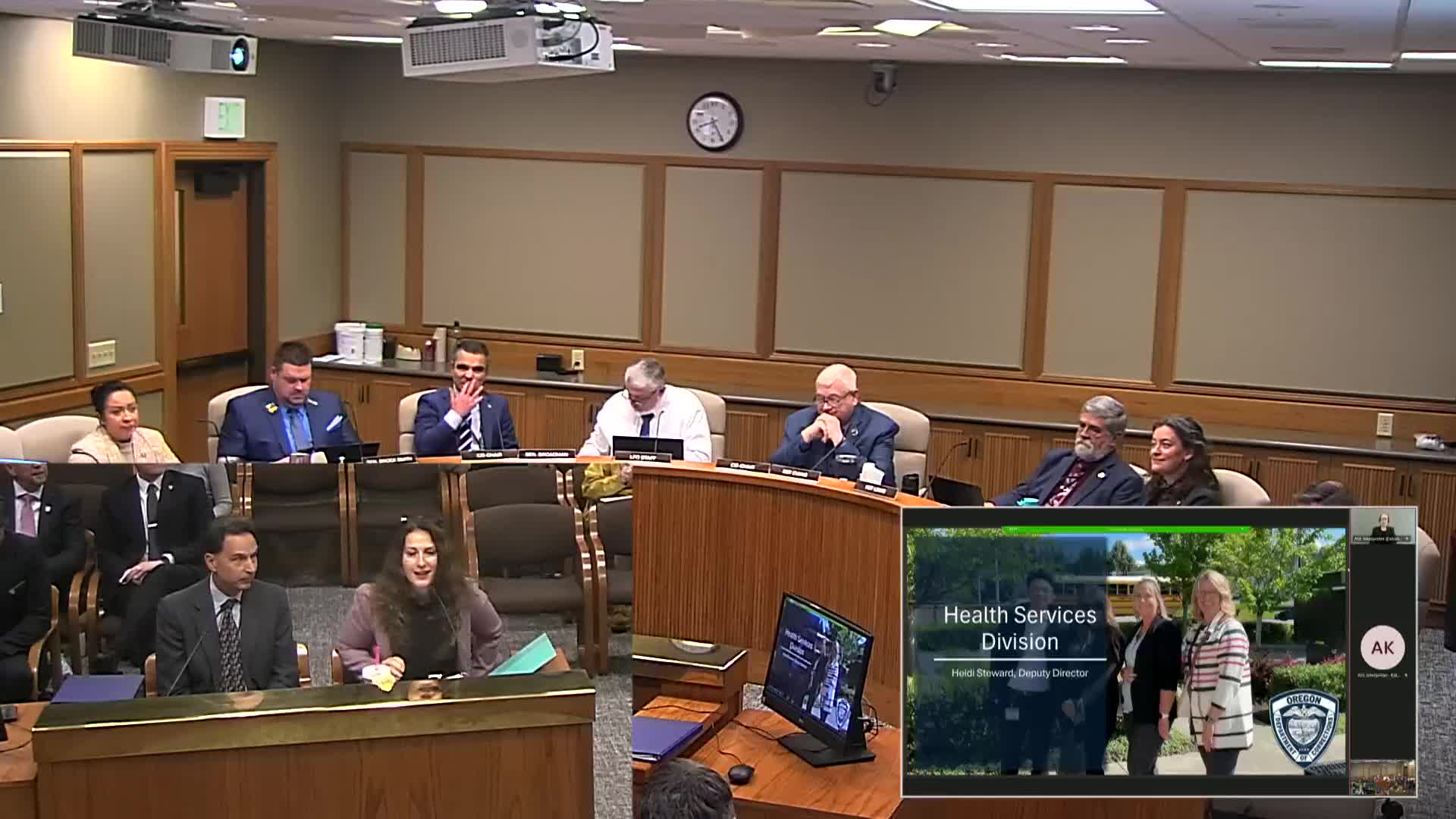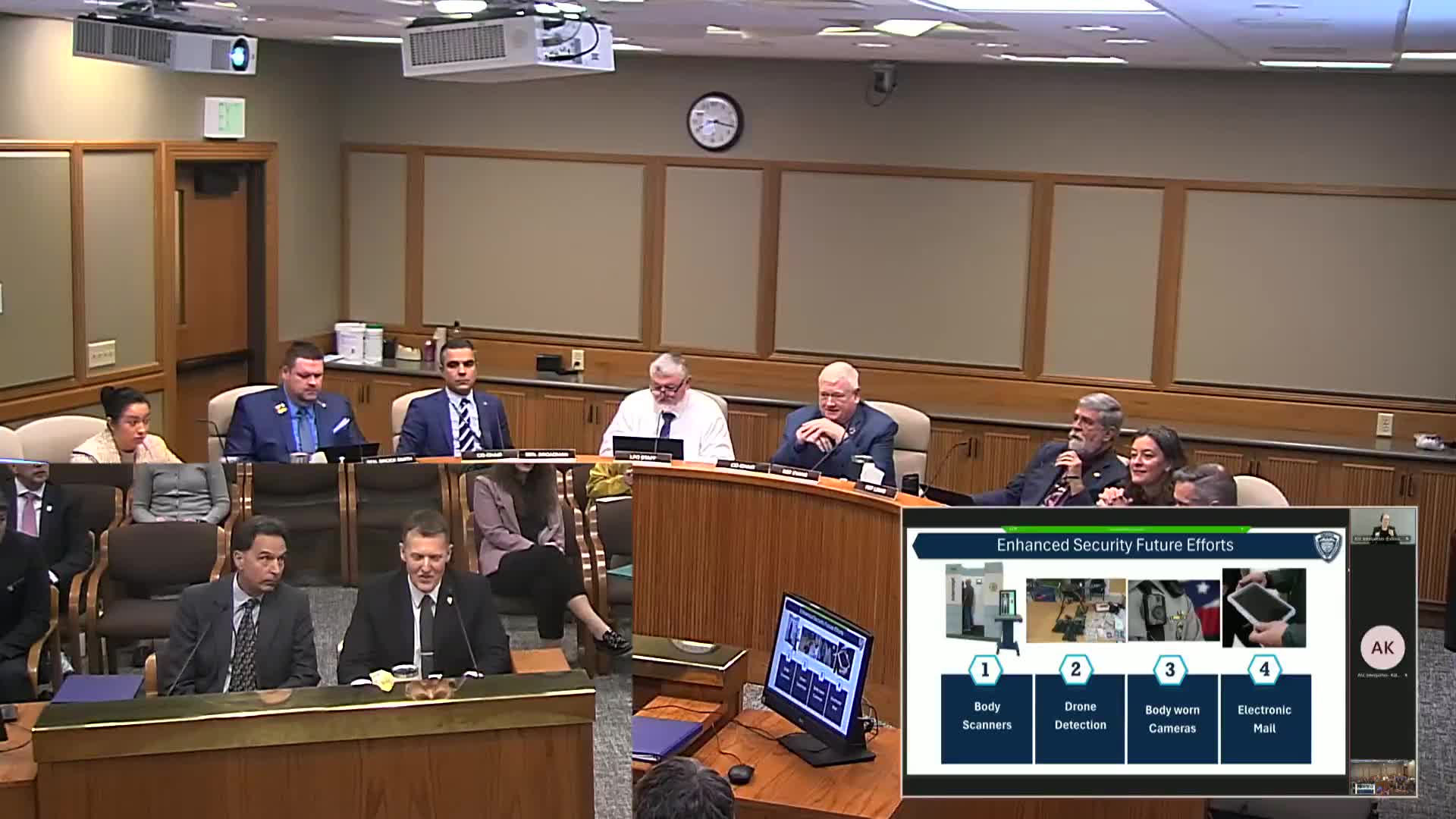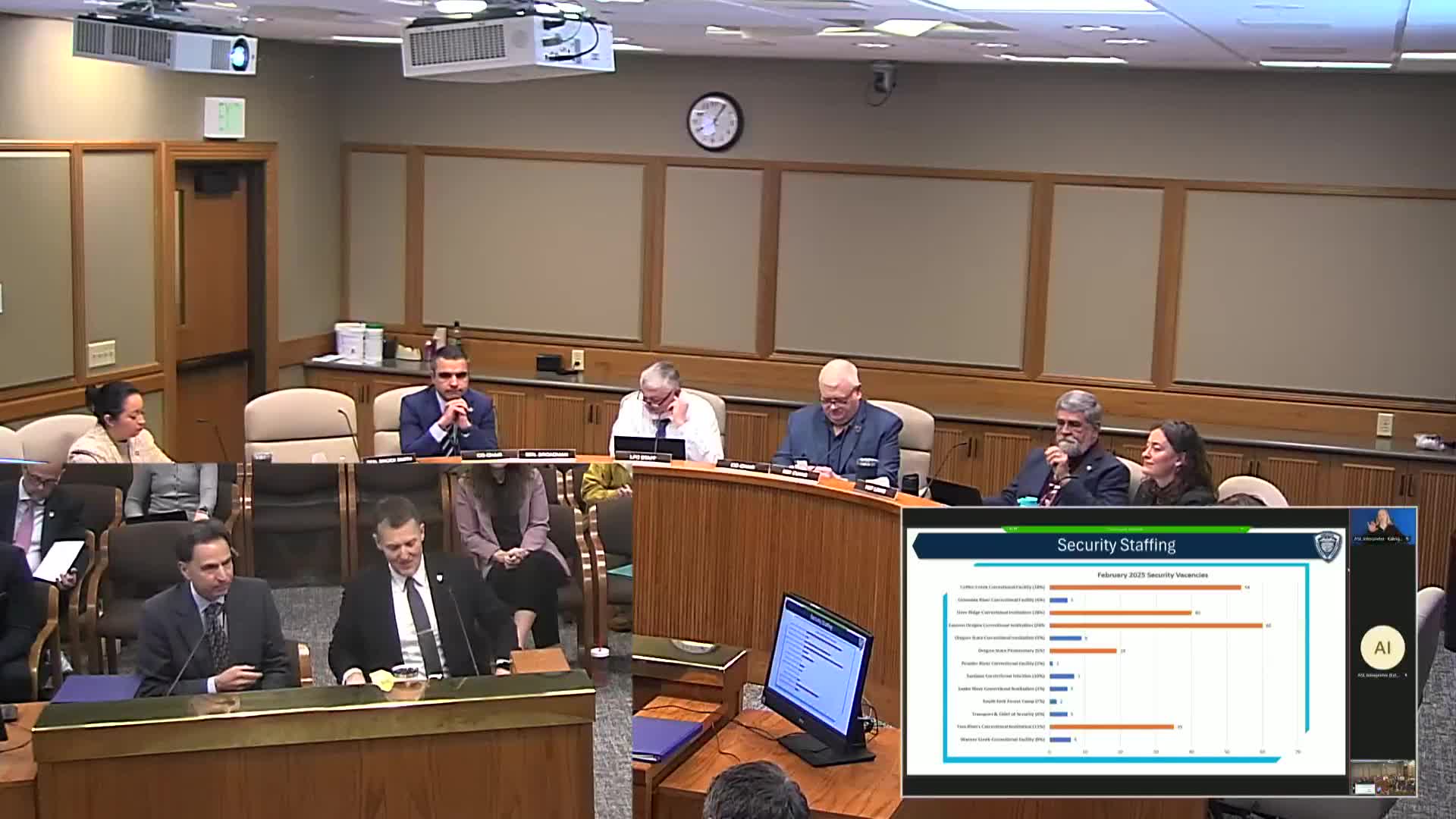Article not found
This article is no longer available. But don't worry—we've gathered other articles that discuss the same topic.

DOC highlights reentry programs: college courses, pre‑apprenticeship and vocational training

DOC health services briefing: off‑site care backlog, MOUD redesign and EHR rollout delays

DOC outlines security upgrades under budget request: body scanners, drone detection, cameras and wastewater pilot

